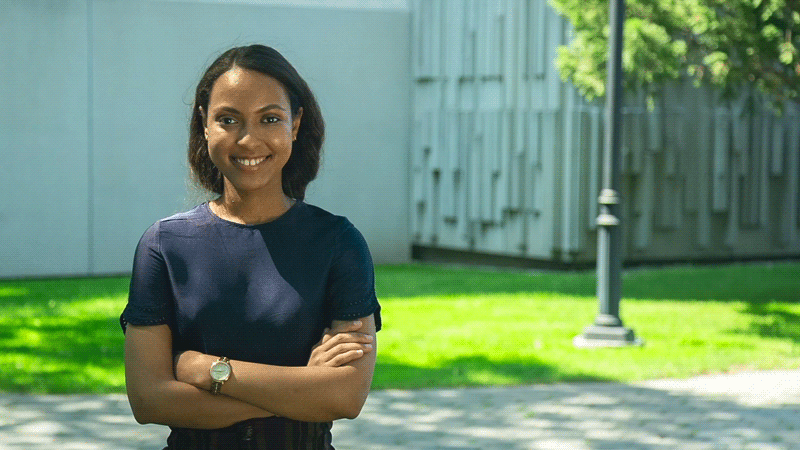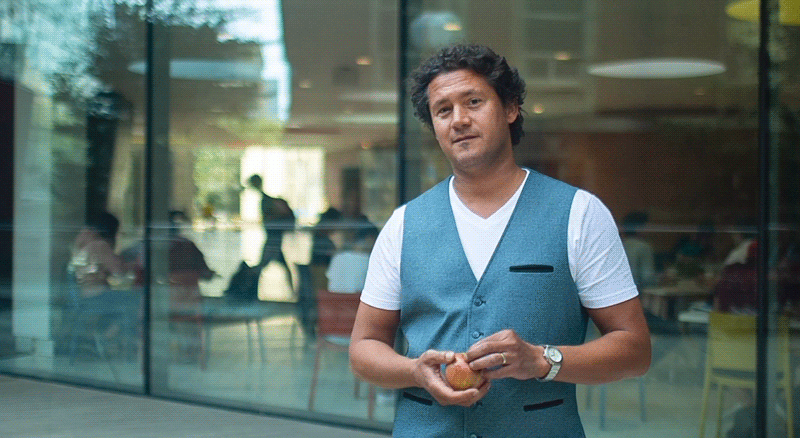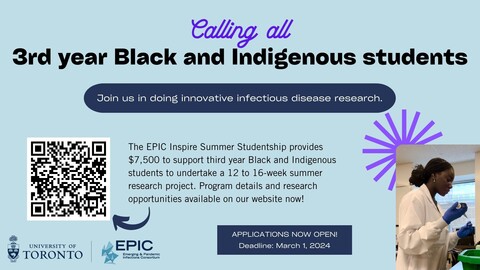2019 Dean's Report
Dear Members of the U of T Medicine Community,
To bring our strategic plan to life, we began by focusing on seven goals, with eight working groups established to ensure they are realized. These groups have been thoughtfully engaged in identifying the best ways to define and implement our ambitions. For example, one of our goals is to expand the mandate of the Office of Indigenous Medical Education. Critical to that effort is to build and deepen meaningful relationships with Indigenous populations throughout our region, which takes time and careful considerations. At the same time, meaningful results are being achieved. We have signed an agreement to establish a centralized Indigenous collaborative learning/working space at Women’s College Hospital, projected to open by October 2019. To advance wellness within the Faculty, we established two working groups. The first is learner-focused and seeks to optimize the learning environment, with a particular emphasis on addressing student mistreatment. The working group has developed recommendations in four key areas to address mistreatment across the learner continuum: Institutional Leadership, Accountability, Clarity and Awareness. They are also working to clarify processes, policies and communication pathways. The second working group is focused on faculty wellness, working across U of T Medicine and with our Toronto Academic Health Science Network partners to advance wellness in our workplaces. The working group has appointed the first Faculty of Medicine Professional Values Director, and will seek to have a Faculty Wellness Director hired in 2020 and a Faculty Wellness Working Group Report completed later this fall. Our efforts to ensure excellency through equity will be greatly enhanced when the Faculty’s first Equity, Diversity and Inclusion (EDI) plan is released later this fall. The plan aims to affect a culture shift that ensures EDI is a consideration in all our activities. It will also propose a new interdepartmental centre to fuel our scholarship and curriculum development in this field of work. We also seek to expand rehabilitation research and clinical capacity to address burgeoning demographic needs. To that end, we have explored opportunities to expand teaching and research activity, as well as spur curriculum innovation. Over the next year, the working group intends to pilot and integrate new learning strategies and tools into new and existing courses. We want to strengthen our pipeline for research and innovation leadership in the Faculty through training and faculty development. The working group for this goal has developed a job description for a new Executive-in-Residence role that will work with faculty members to translate research discoveries into new entrepreneurial endeavours. They also plan to develop an online, searchable database of leadership development opportunities available to our community within the next year, in addition to filling that new role. To harness the power of artificial intelligence in medicine and research, we have proposed a new centre for machine learning medicine, which will help coordinate research in the field and develop curriculum and learning modules for learners, faculty and practising health professionals. An inaugural symposium on machine learning in medicine will run on November 21 – the first of many more learning opportunities on artificial intelligence and machine learning for members of our community. And, to ensure we have the infrastructure and space required to support excellence, a master plan is in development to evaluate the current quality and quantity of space utilized by the Faculty of Medicine. We are securing the services of external consultants who can guide this process forward and help us determine our future needs. Extensive consultations and monitoring of key metrics underpin identification of our goals and evaluation of our progress. Nearly 100 people serve on working groups that are helping to ensure U of T Medicine’s success, in addition to more than 400 people who contributed to the strategic plan’s development. The broad engagement of the U of T Medicine community in realizing our ambitions speaks to your commitment to our collective success. I want to thank you all for your commitment, citizenship and collaboration. Together, we are a force for new knowledge, better health and equity. Sincerely, Trevor Young |
| Read the 2019 Dean's Report Email |
Excellence Through Equity"As an immigrant, I only realized the importance of sharing my lived experiences when my personal stories resonated deeply with racialized minorities in the GTA who were apprehensive about STEM.
Through the ‘We All Belong’ Campaign, we are pushing students to reflect on their duties as allies and facilitators of positive change towards vulnerable communities. We are creating a culture that normalizes inclusive practices in all departments." — Lina Elfaki, MSc Graduate, Class of 2019 / MD Student, Class of 2023 |
Ecosystem of Collaboration
— Kristina Kokorelias, PhD Candidate, Rehabilitation Sciences Institute |
Groundbreaking Imagination
|
2019 Academic Strategic Plan
Expand the mandate of the Office of Indigenous Medical Education
A. The working group has accomplished the following to date:
- Completed initial consultations with various Faculty of Medicine leadership and committees, as well as TAHSN partners.
- Identified key stakeholders, local clinical champions, elders and learners to populate our small format working groups (on-going).
- Conducted a review of admissions and supports, recruitment and retention as well as the learning climate and curriculum within Canada and abroad (on-going).
- Secured a Memorandum of Understanding with Women’s College Hospital (WCH) to establish a centralized Indigenous collaborative learning/working space has begun to take shape. It is projected that this space will be ready by October 2019. An architect has been enlisted to help the space evolve over the next several months.
- The partnership with WCH, going forward, will be pivotal in cultivating a learning and working environment in which is culturally safe and where Indigenous history, values and knowledge are intrinsic -embedded in our existing colonial structures. This collaboration/partnership will be integrative and synergistic as we move forward in the development of policies, curricula and programs guided by Indigenous voices and wise practices.
B. Over the next year, the working group aims to accomplish the following:
- Establish the Academic Advisory Circle
- Establish the Community Advisory Circle
- Establish the Elder’s Councils (one within WCH and one shared between the FoM and Dalla Lana’s Waakebiness-Bryce Institute for Indigenous Health)
- Establish formal and informal partnership agreements - both academic and community based
- Prepare a detailed report based on visits with centres of excellence within Canada and abroad
Optimize Our Learning Environments
A. The working group has accomplished the following to date:
1. Development of OLE Working Group Recommendations
Operating under the assumption that student mistreatment would be its initial (though not exclusive) focus, the working group developed recommendations organized according to the following four key areas to address mistreatment across the learner continuum: Institutional Leadership, Accountability, Clarity and Awareness.
2. Development of Mistreatment Roles and Responsibilities
Building on the recommendations of the working group, some initial roles and responsibility scoping has been completed to help inform the creation of position descriptions for the Faculty lead/ombudsperson and mistreatment advisors/advocates as well as the Faculty-level advisory council.
3. Establishment of MD Program Working Group
A MD Program working group (Student Mistreatment Management Team), chaired by the Associate Dean, Health Professions Student Affairs, has been created to review how to more effectively communicate about and operationalize the MD Program Protocol for addressing incidents of discrimination, harassment, mistreatment and other unprofessional behavior. The work of this MD program-specific group will both inform and be informed by the OLE Working Group recommendations; in many cases, changes made to MD Program practices will act as a pilot for the longer-term Faculty-wide plans.
4. Endorsement of the Recommendations of the TAHSNe Learning Environment Working Group
Given that the learning environment includes our hospital partners, consultation between the OLE WG and TAHSNe LE WG is ongoing, including with respect to TAHSNe LEWG draft recommendations, including:
• Leverage an annual review process to emphasize commitment to professionalism with all learners
• Raise awareness with patient/families with respect to receiving care in an academic environment
• Organizations to clearly outline procedures for managing disclosure (complaints) and process for remediation
5. Consideration of Elements of a Positive Learning Environment
Building upon recommendations from a previous learning environment working group, particularly its comprehensive articulation of the elements of a positive learning environment, OLE considered the development of a learning environment framework with enablers. While the working group agreed that the development of such a framework has merit, it agreed that it would be put aside for the time being so the group could focus on a more specific learning environment issue that is was be of the greatest interest to OLE Working Group members; namely, learner mistreatment. Future plans include returning to the development of a learning environment framework with enablers, which would include consideration of metrics.
B. Over the next year, the working group aims to accomplish the following:
- Recruitment of Faculty Lead/Ombudsperson and establishment of Learner Mistreatment Advisory Council
- FOM Portal established for all medical learners for disclosure/reporting of LE issues
- Work plan in place re the standardization of FOM mistreatment policies and processes
- Work plan in place re the development of a FOM learning environment framework with enablers, including a communication plan
- Development of education modules re Professionalism/Allyship/LE
Foster a Culture where Health, Wellbeing and Resilience are Promoted
A. The working group has accomplished the following to date:
The Wellness Working Group has divided into four Action Teams (Research and QI, Professional Values, Literature Review and Environmental Scan), each of which has taken responsibility for an element of the overall WG objectives. We have a large number of faculty from the basic science, rehabilitation science and clinical sectors working in these groups. Collectively, we have:
- Used preliminary data from the FoM’s ‘Voice of the Faculty” survey to help inform our goals and objectives. These data have been shared with a number of departmental Executive Committees, as well as TAHSNe and TAHSNm.
- Conducted an environmental scan by interviewing Wellness leads at peer institutions in Canada and the United States; these are all institutions known to set the standard in Wellness programs and interventions as well as publications on their efforts
- Engaged the help and expertise of UofT academic librarians to conduct two reviews of the literature. The Literature Review Action team is looking at high-quality review articles that are helping us reach agreement on definitions of wellness, burnout and resiliency, and to identify interventions that have been shown to promote wellness in faculty and in other groups such as airline pilots. The Research and QI action team has reviewed >500 abstracts and is now analyzing 90 original research articles in order to determine individual and organizational predictors of faculty burnout, wellness, resilience, work satisfaction and suicidality. We are also looking at research on interventions aimed at improving wellness. This team’s goal is to be able to inform future studies of wellness and burnout in our faculty, and to be able to track the impact of interventions. (The current Voice of the Faculty survey does have some wellness information but does not look it comprehensively).
- We have hired Dr. Pier Bryden, our Faculty of Medicine Professional Values Director. She is working closely with the Professional Values Action Team which has been working on defining our faculty values, and looking at the ways in which we interact. Dr. Bryden is conducting an external review and is collaborating with education, EDI and legal leaders in studying our policies and procedures related to discrimination and harassment.
- Lynn Wilson and Julie Maggi, co-leads of the Faculty Wellness Working Group, and Pier Bryden are part of a committee that is planning a TAHSNm/Faculty of Medicine Retreat in fall 2019. The goal of the retreat is to provide updates regarding activities and to make recommendations to TAHSN regarding moving forward in a way that is collaborative and complementary. It should be noted that a number of our TAHSN hospitals are doing excellent work in this area, including development of a robust peer support program at SickKids and the launching of multiple initiatives at CAMH. MGH is also innovating in this area.
- Lynn Wilson is a member of the TAHSN People Wellness Initiative, which is chaired by Sarah Downey and Catherine Zahn, and is holding its introductory meeting on September 3. This group will be holding a People Wellness Retreat on behalf of the TAHSN CEOs, and will address issues relevant to staff, clinicians and learners in their hospitals.
B. Over the next year, the working group aims to accomplish the following:
- We will be submitting a comprehensive Wellness Working Group Report in fall 2019, with specific recommendations for program elements, evaluation strategies and recommended job positions. This report will include opportunities for partnership with TAHSN on the issue of wellness.
- We aim to have a Faculty Wellness Director in place by late winter/early spring 2020 along with a Faculty Wellness Strategist, who will develop programs and conduct evaluations.
- We will conduct a Faculty Wellness survey in 2020 in order to establish a baseline.
- We will initiate a Professional Values Program which will build on current strengths in the FOM and be informed by leading practices at a number of institutions in North America. This program will be integrated across our sectors and the education continuum. We will have revised policies and procedures, and will initiate strategies and conduct faculty development that will promote professional values.
Create & Resource a Comprehensive Equity, Diversity & Inclusion Plan
A. The working group has accomplished the following to date:
- Conducted an environmental scan of equity, diversity and inclusion (EDI) practices across the Faculty of Medicine;
- Identified key partnerships to support EDI work;
- Identified promising practices in EDI educational campaigns;
- Prepared a summary proposal to establish an Extra-Departmental Unit (Type C) to fuel scholarship and curriculum development in this field of work; and,
- Prepared a draft EDI plan and consulted broadly in working to finalize the plan.
B. Over the next year, the working group aims to accomplish the following:
- Release the Faculty of Medicine's first Equity, Diversity & Inclusion Plan
- Launch a new centre focused on research and education in EDI
Expand Rehabilitation Research & Clinical Capacity
A. The working group has accomplished the following to date:
- Developed a comprehensive logic model to inform the activities, resources and outputs needed to accomplish our objective.
- Completed a literature review and used this research to facilitate focus groups comprised of a broad range of stakeholders to determine the current state of engagement of clinical faculty, as well as opportunities and recommended implementation of strategies moving forward. The summary report will inform the development of a strategic plan, communication strategy and early implementation of the plan by August 2020.
B. Over the next year, the working group aims to accomplish the following:
- Pilot blended learning strategies guide & tools (nearing completion)
- Using flipped classroom & computer supported collaborative interaction strategies
- Develop a best practice guide for introducing digital learning tools into the curriculum
- Integrate blended learning strategy tools into existing courses
- Identify (2-3) existing courses interested in integrating digital tools and blended learning strategies to increase capacity, flexibility and reach.
- Integrate hybrid (in person and online) teaching strategies to allow for multiple types and levels of student engagement and experience into identified courses.
- Review teaching and student experience and learning of technology-supported blending learning strategies to refine and improve guide to best practices.
- Establish Faculty model and support structure for e-Moderating blended learning.
- Identify 10 additional courses to supplement existing teaching with digital blended learning strategies and tools.
Reflect the Emerging Role of Artificial Intelligence
A. The working group has accomplished the following to date:
- Conducted a review of activities underway in Toronto related to the application of Artificial Intelligence and machine learning in medicine;
- Reviewed current educational offerings in Artificial Intelligence and machine learning;
- Organized a half-day symposium on machine learning in medicine, to be offered in November 2019; and,
- Consulted broadly in preparing a proposal to establish an Extra-Departmental Unit (Type C) that will help coordinate research in the field and develop curriculum and learning modules for learners, faculty and practising health professionals.
B. Over the next year, the working group aims to accomplish the following:
- Launch a new centre for research and education in machine learning in medicine; and,
- Expand educational offerings related to machine learning in medicine, with an emphasis on learning modules for learners and current healthcare professionals.
 In January, we launched our ambitious new
In January, we launched our ambitious new  Many minorities youths perceive there is no place for them in STEM. As privileged students at U of T’s Faculty of Medicine, we should strive to play an active role in creating paths for all youths to thrive in their chosen STEM career.
Many minorities youths perceive there is no place for them in STEM. As privileged students at U of T’s Faculty of Medicine, we should strive to play an active role in creating paths for all youths to thrive in their chosen STEM career. “One of the things that has defined my student experience in RSI is the strong sense of community we have.
“One of the things that has defined my student experience in RSI is the strong sense of community we have. “Scientific discovery is an intensive, yet rewarding, experience. Its impact can be heightened by translating those discoveries into practical applications. Based on the scientific research from my lab, I helped to establish Nutrigenomix, which is utilizing genetic information to deliver DNA-based personalized nutrition recommendations for healthcare professionals and their clients.
“Scientific discovery is an intensive, yet rewarding, experience. Its impact can be heightened by translating those discoveries into practical applications. Based on the scientific research from my lab, I helped to establish Nutrigenomix, which is utilizing genetic information to deliver DNA-based personalized nutrition recommendations for healthcare professionals and their clients.
